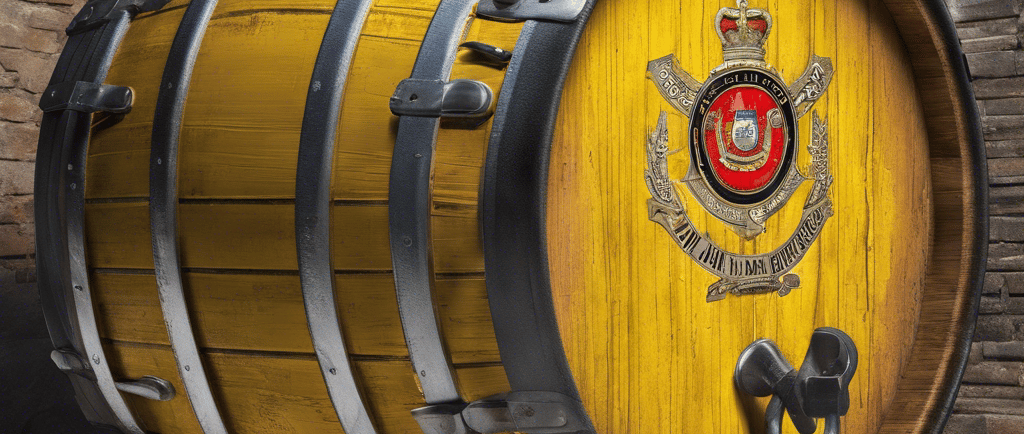The Free the Beer Case
This is the interesting Free the Beer Case - or to use its correct legal name - the case of R. v. Comeau., which was decided in the Supreme Court of Canada in 2018. It is the story of Gerard Comeau who left his home province of New Brunswick to take a shopping trip across the border in Quebec, pick up some liquor and then return home. In the process he ran afoul of the New Brunswick Liquor Control Act, had his liquor confiscated and was fined. It is also the story of his legal battle to have his ticket thrown out and to have the courts strike down the portion of the Liquor Control Act that impairs the ability of persons to transport liquor across the provincial border.


This is the interesting case of Free the Beer, or to use its correct legal name, the case of R v. Comeau.
The case relates to an incident in 2012 where a Mr. Gerard Comeau decided to cross from his home province of New Brunswick into the neighbouring province of Quebec, purchase some alcohol and then return home. In the process, he ran afoul of New Brunswick’s Liquor Control Act, had his alcohol confiscated by police and was issued a nearly $300 ticket. The case was decided by the Supreme Court of Canada in 2018 but the story begins almost 6 years earlier.
On October 6th, 2012, Mr. Gerard Comeau left his home in the Tracadie-Sheila region in New Brunswick and drove roughly 178 kilometres to Campbellton, New Brunswick. It is here that the Restigouche River forms the border between the province of New Brunswick to the south and the province of Quebec to the north. Driving across the border at Campbellton, Mr. Comeau entered the community of Pointe-a-la-Croix and the Indigenous community of the Listuguj First Nation, both on the northern Quebec side of the river. He then proceeded to go shopping at three different liquor stores in those communities.
It was not uncommon for residents of New Brunswick to cross the border to purchase liquor in Quebec, as the prices in that province were lower. However, the province of New Brunswick had enacted a provincial law, the Liquor Control Act, which regulated how liquor could be made, sold, possessed and used in the province. Amongst other things, this Act prohibited anyone in New Brunswick from possessing more than 12 pints of alcohol, unless it had been purchased from a New Brunswick government store.
As an aside, it is recognized that it may be odd to persons from some countries that a government would get directly involved in the sale of alcohol, but it is not an uncommon practice in Canada. Every province in Canada have decided that they wish to control the sale and distribution of liquor to the public and, to accomplish this, they have all set up some sort of government owned liquor business to do it, with liquor control laws to accompany them; the one exception being Alberta which privatized its government stores in 1993.
These government owned liquor stores have monopolies of varying degrees over the market because the liquor laws restrict the ability of private businesses to sell liquor. For example, in the province of British Columbia, liquor can only be sold in a government store or in a private store that is granted a liquor licence.
Some have criticized these government liquor operations as unfair monopolies which needlessly drive up the price of alcohol. These critics often view the reason for governments for creating these systems of government stores as primarily to generate revenue. Those on the opposite side of the debate would point out that government involvement helps to minimize social problems associated with alcohol, by ensuring high standards are set and observed (such as ensuring minors are not able to enter government stores where liquor is sold, discouraging over consumption by selling at prices that are excessively low, etc.). And they would also note that revenues generated in government stores can be used for public services.
Now, let us turn back to Mr. Comeau and the events of October 6th, 2012.
Unfortunately for Mr. Comeau that day, he had purchased liquor exceeding the limit prescribed in the Liquor Control Act and this meant that, as soon as he crossed back across the border into New Brunswick with his purchases, he would be in violation of that law. Also, unfortunately for Mr. Comeau, authorities had taken notice of the fact that many New Brunswickers were circumventing the province’s liquor laws by importing large amounts from Quebec and – to respond to this – had begun to monitor the border.
Therefore, while Mr. Comeau was on his liquor shopping trip in Pointe-a-la-Croix, he was being watched by members of the Royal Canadian Mounted Police (the RCMP) in unmarked police vehicles. These officers reported back their observations to their counterparts in New Brunswick. Once Mr. Comeau drove his truck back into New Brunswick, he was pulled over by officers from the Campbellton detachment of the RCMP. Upon searching his vehicle, the police found him in possession of 15 cases of beer (totaling 354 bottles and cans) and 3 bottles of spirits, which exceeded the limit allowed by the Liquor Control Act. The alcohol was seized, and Mr. Comeau was issued with a ticket for the violation, amounting to $240 plus some fees, which brought the sum to just under $300.
Mr. Comeau decided to fight his ticket and, in 2016, the matter went to trial in New Brunswick Provincial Court. There he argued the Liquor Control Act limit on possessing alcohol obtained from outside the province was contrary to the Canadian Constitution and pointed to section 121 of the Constitution Act, 1867 which declared that a good or product from one Canadian province must be “admitted free” into another province. His defence argued that this meant the Constitution intended there to be free trade in goods between the provinces and that any law, such as the Liquor Control Act, which interfered with that free trade was unconstitutional.
The prosecution denied this interpretation of the Constitution put forward by Mr. Comeau. They pointed out that section 121 of the Constitution Act, 1867 had already been litigated before and that almost a century prior the Supreme Court of Canada had ruled that it was only meant to prevent provinces from charging customs duties for goods crossing their borders, and not intended to prevent other sorts of regulations. They stated that this previous decision of the Supreme Court was binding and that Mr. Comeau’s argument should be rejected.
The case and the arguments and counterarguments gained a lot of attention, amongst the public, amongst government officials and others. Many Canadians supported Mr. Comeau’s fight to do away with limits on the interprovincial flow of alcohol, and indeed other interprovincial trade barriers. One poll conducted in 2017, which sought to gauge public opinions on the matter, reported back that 89% of respondents were in favour of Canadians being able to transport any legal product between provinces. A team of lawyers even offered their services for free to Mr. Comeau.
However, other parties, including other provincial governments were loudly opposed to Mr. Comeau’s crusade. They asserted that, if the court ruled in Comeau’s favour, not only would it jeopardize the ability of provinces to regulate liquor distribution and sales, but it would set a new precedent that would cause all sorts of other trade regulations to come crashing down. Laws protecting agricultural sectors and environmental protection regulations were cited as examples of laws that could end up being struck down.
After considering the arguments, and hearing evidence from a historian who testified as to what the intentions of the drafters of the Canadian Constitution were, Judge Roland LeBlanc of the Provincial Court gave his judgment. He ruled in favour of Mr. Comeau and found that section 121 of the Constitution Act, 1867 had previously been incorrectly interpreted by the Supreme Court, declaring that mistake could now be seen because there had been significant new evidence presented, such as the expert testimony of the historian. Judge LeBlanc struck down the provision in the Liquor Control Act which put limits on possessing liquor obtained from out-of-province and found Mr. Comeau not guilty.
The prosecutor immediately appealed this ruling to a higher court, the New Brunswick Court of Appeal. However, the appellate court refused to hear the case. This denial was a setback for the government’s attempts to maintain the Liquor Control Act unchanged. Consequently, the government prosecutor then appealed to the Supreme Court of Canada to take up the matter, and that highest court in the land agreed to do so.
On April 19th, 2018, the Supreme Court of Canada handed down its judgment. It overturned the decision of the trial judge, stating he had been incorrect to strike down the provision of the Liquor Control Act and not follow the precedent set by the Supreme Court in its earlier decisions. It further declared that the trial judge had improperly relied on the historian’s testimony. The court clarified that section 121 of the Constitution Act, 1867 – where it talked of products from other provinces being “admitted free” - was not intended to institute interprovincial free trade without any restrictions. Instead, it was meant to stop provinces from instituting laws that were mainly aimed at restricting trade across borders, such as tariffs, and not other laws that may have some incidental impact on trade but were not directly aimed at it.
Since the Liquor Control Act wasn’t primarily targeted at interprovincial trade it was valid and constitutional, even if it had some side effects on trade like making it harder to import beer. To quote from the decision of the court: “The objective of the New Brunswick scheme is not to restrict trade across a provincial boundary, but to enable public supervision of the production, movement, sale and use of alcohol within New Brunswick.”
And so, the Supreme Court had upheld the liquor laws and liquor monopoly of the New Brunswick government, and by extension, the similar systems in the other provinces. Much to the chagrin of many beer drinkers no doubt.
SOURCES:
Alberta Gaming, Liquor and Cannabis, (n.d.). About liquor in Alberta. aglc.ca. https://aglc.ca/liquor/about-liquor-alberta
Bisset, K. (2018, April 18). Supreme Court ruling on New Brunswick man’s border-beer battle could change Confederation. Global News. https://globalnews.ca/news/4152904/supreme-court-ruling-on-new-brunswick-mans-border-beer-battle-could-change-confederation/
Campbell, D. (2013, April 30). Canada is proof that state-controlled drinking is good for health. The Guardian. https://www.theguardian.com/society/2013/apr/30/canada-state-controlled-drinking-health
Liquor Control Act, RSNB 1973, c L-10. https://canlii.ca/t/564nd
Novac, N. (2017, October 17). Tempering R v Comeau : A Primer on the Interprovincial Trade Debate (Part 1). Thecourt.ca. https://www.thecourt.ca/tempering-r-v-comeau-a-primer-on-the-interprovincial-trade-debate/
Platt, B. (2018, April 19). 'Free the beer' case loses at Supreme Court, as trade barriers between provinces are ruled constitutional. National Post. https://nationalpost.com/news/politics/free-the-beer-case-loses-at-supreme-court-as-provincial-trade-barriers-are-upheld-as-constitutional
R v Comeau, 2016 NBPC 3 (CanLII). https://canlii.ca/t/gpr3f
R. v. Comeau, 2018 SCC 15 (CanLII), [2018] 1 SCR 342. https://canlii.ca/t/hrkm6
Supreme Court of Canada. (2018, April 19). Case in Brief: R. v. Comeau. Supreme Court of Canada. https://www.scc-csc.ca/case-dossier/cb/37398-eng.aspx
The Canadian Press. (2023, December 14). A look at alcohol sales rules by province across Canada. Global News. https://globalnews.ca/news/10171555/alcohol-sales-rules-by-province/
The Constitution Act, 1867, 30 & 31 Vict, c 3. https://canlii.ca/t/ldsw
Valiante, G. (2017, November 28). Canadians want to be freed from provincial alcohol monopolies: poll. CTV News. https://www.ctvnews.ca/business/canadians-want-to-be-freed-from-provincial-alcohol-monopolies-poll-1.3697268
